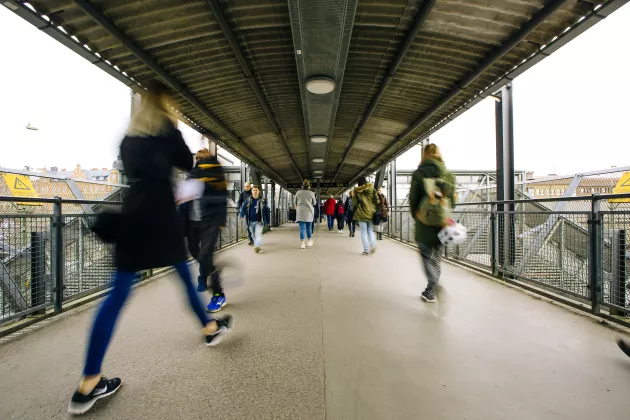Of course, the unusual year of 2020 had an enormous impact on the statistics for business travel at Lund University. The number of flights dropped by around 80% and the number of train journeys by around 75%. The trips that appear in the statistics mainly took place during January and February 2020. This means a reduction of almost 5 000 tons of CO2 emissions compared with 2019. Maintaining a low rate of air travel is necessary to achieve the target of halving emissions of greenhouse gases by 2023 (reference year 2018).
Expenses for business travel in private cars did not drop as much, while the distances travelled by car decreased by 34%. The explanation is probably that travel by car was safer for individuals in terms of infection risk.
During 2020, total energy consumption decreased somewhat compared with the previous year: approx. -3%. The decrease is mainly thought to depend on measures to increase energy-efficiency in buildings, and partly on reduced ventilation and lighting as a result of many premises being practically empty for most of the year. However, some research equipment was used to a larger extent due to shift work during the pandemic. Altogether, the changed work patterns during the year do not seem to have affected energy consumption in the University’s premises to any great degree. Since 2019, all supplied electricity, district heating and district cooling come from renewable sources.
The complete environmental management report (in Swedish)
Read more about the Sustainability plan for Lund University
Contact person for the environmental management report: maria [dot] nilsson [at] bygg [dot] lu [dot] se (Maria Nilsson), environmental coordinator at LU Estates.


